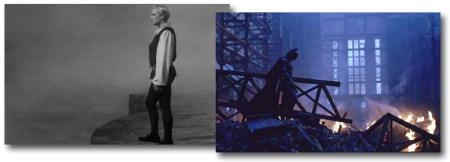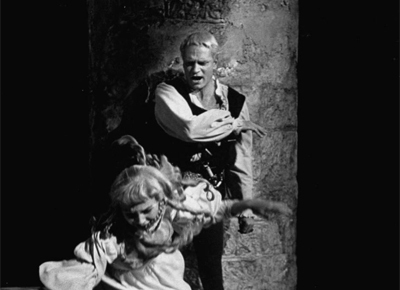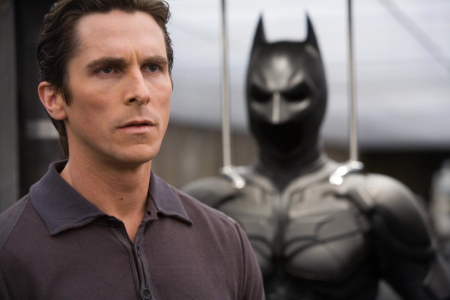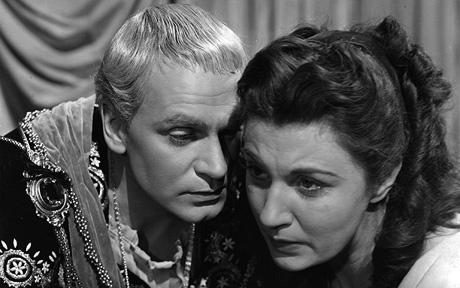Oscar Whispers: Marilyn & Madonna
 Wednesday, June 22, 2011 at 2:00PM
Wednesday, June 22, 2011 at 2:00PM I've recently had two brief conversations with people who have seen My Week With Marilyn and Madonna's W.E. respectively. I was happy to have the conversations so closely together because it's always fun to pair Madonna with Marilyn and one doesn't get the opportunity so much anymore. Plus, aren't we all just itchy to see some real Oscar players emerge?
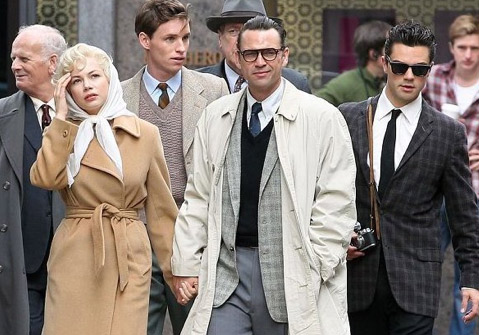 Left to Right: Michelle as Marilyn, Eddie Redmayne as Colin Clark (lead), Dougray Scott as Arthur Miller, and Dominic Cooper as Milton Greene
Left to Right: Michelle as Marilyn, Eddie Redmayne as Colin Clark (lead), Dougray Scott as Arthur Miller, and Dominic Cooper as Milton Greene
Bear in mind that these are singular tossed off opinions and the only opinions that matter in the Oscar race are the ones from the Opinion Makers within the voting ranks (the Julias, the Beattys, the Spielbergs you know the type), and any opinons marked "General Consensus" which take their time to form. The films are also far from release so they probably saw cuts that weren't final.
The friend who saw My Week With Marilyn was pretty cool on it, finding Michelle Williams difficult to adjust to as the blonde bombshell at first but eventually just fine. The film itself was judged to be lightweight. (Though one man's lightweight is another man's "frothy and charming", don'cha know? See: billions of examples through history... and Oscar history) Kenneth Branagh was singled out for praise for a showy spin as Sir Laurence Olivier. That may be worth noting since we all know that Branagh is a big ham and who better to receive that honey-glazed THESPIAN treatment than pompous Olivier?
But what of Judi Dench, I asked? "Better in Jane Eyre" was the only opinion I wrangled there.
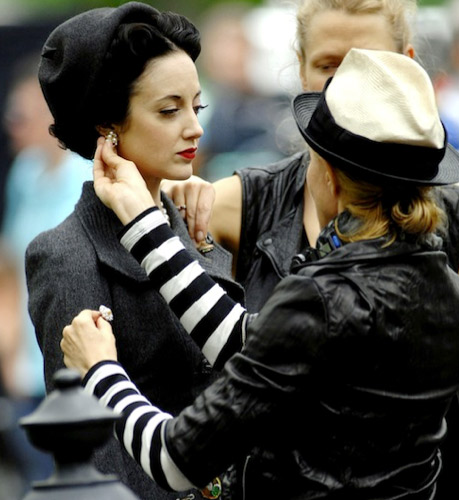 Madonna is hands on with Andrea Riseborough's look on "W.E."The reader who saw Madonna's W.E., which looks at the famous affair of Wallis Simpson and Prince through the eyes of a modern woman in an unhappy marriage, really liked the film but she hopes it gets a new ending. High praise went to the costumes (which we'd already suspected would happen since Arianne Phillips is involved), William Orbit's score (interesting! You'll remember that the composer worked on Madonna's greatest CD "Ray of Light"), and Andrea Riseborough as Wallis Simpson who was deemed 'award-worthy' without any qualifiers.
Madonna is hands on with Andrea Riseborough's look on "W.E."The reader who saw Madonna's W.E., which looks at the famous affair of Wallis Simpson and Prince through the eyes of a modern woman in an unhappy marriage, really liked the film but she hopes it gets a new ending. High praise went to the costumes (which we'd already suspected would happen since Arianne Phillips is involved), William Orbit's score (interesting! You'll remember that the composer worked on Madonna's greatest CD "Ray of Light"), and Andrea Riseborough as Wallis Simpson who was deemed 'award-worthy' without any qualifiers.
To my surprise she referred to Riseborough as "supporting". I think I had assumed that like Julie & Julia, the obvious recent predecessor in 'two time frames at once, joined by the modern woman's obsession' that it would essentially be a two-hander with Abbie Cornish (in the present) and Riseborough (in the past) both having lead roles. Maybe it is. Everyone seems to have very different ideas these days about what "lead" and "supporting" means.
It's not much. Just some whispering but it's fun to fantasize about future Oscar players while we wait... and wait... and wait. Only 215 days until nominations! Hee.



